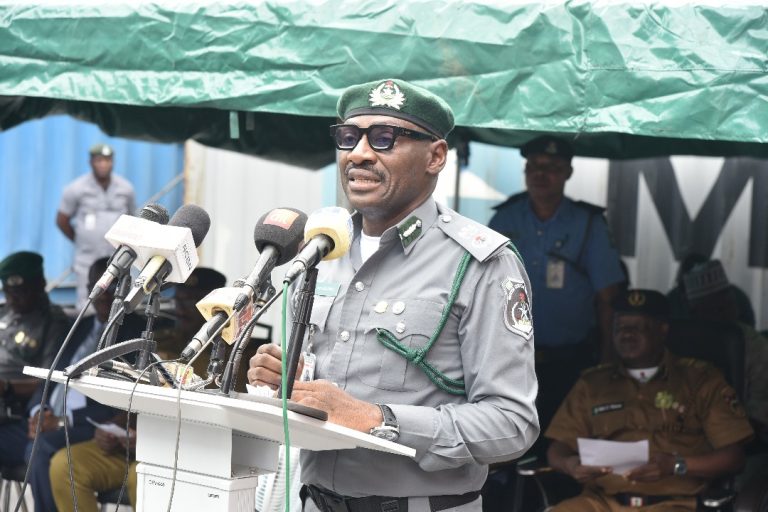- As Europe fears Turkey could block EU deal over Migrants visas crisis
European officials have agreed to unlock €10.3bn in bailout money for Greece as the International Monetary Fund made a significant climbdown in its demand for upfront debt relief for the recession-hit country.
Greece’s international creditors emerged from an 11-hour meeting in Brussels at 2am on Wednesday having agreed on steps to ease the burden of Greece’s €321bn (£245bn) debt mountain, worth 180% of annual economic output.
But the debt relief plan was a far cry from the “upfront” and “unconditional” debt relief the IMF had demanded on Monday, when it warned that Greece would face an ever-growing bill to service its loans. Poul Thomsen, director of the IMF’s European programme, said the IMF had made “a major concession”. “We had argued that [debt relief measures] should be approved up front and [now] we have agreed that they should be made at the end of the programme period.”
The fund had been locked in a stand-off with Germany, which was adamant that debt relief could not be considered before the end of Greece’s current €86bn bailout programme in mid-2018.
Germany’s reluctance to make concessions is also thought to stem from fear of antagonising voters ahead of federal elections, due in October 2017 at the latest.
Negotiations ran more smoothly when eurozone ministers agreed to give Greece access to a €10.3bn (£7.8bn) tranche of bailout funds, split into two payments: €7.5bn in June and €2.8bn in September.
The €10.3bn is the long-delayed second instalment of Greece’s third bailout agreed last August, worth €86bn.
Greece’s finance minister, Euclid Tsakalotos, said he saw “some ground for optimism” for turning “Greece’s vicious circle of recession-measures-recession into one where investors have a clear runway to invest”.
Athens cleared the way for the latest instalment earlier this month when it agreed on contingency measures – spending cuts and tax increases worth €3.6bn that will come into force if it fails to meet its fiscal targets.
Several eurozone finance ministers said Greece had done enough to get the next bailout cheque – hailing the latest austerity measures, an unpopular series of tax hikes pushed through by the Greek parliament on Sunday.
The Syriza-led government of Alexis Tsipras voted through €1.8bn of revenue-raising measures, including tax increases on coffee, tobacco, internet use and a higher VAT. These followed an unpopular pensions reform voted in by a narrow majority earlier this month. The government has also created a privatisation fund to sell off state assets, in effect security for the loans.
France’s finance minister, Michel Sapin, said: “Greece needs room to breathe, it needs certainty. It has made considerable efforts, which again we have seen this weekend in adopting a difficult package of measures.” Even fiscal hawks, such as Slovakia’s Peter Kažimír, agreed it was important to agree the next bailout tranche “because we don’t need another liquidity crisis”, a reference to the dramatic events of last summer when Greece teetered on the brink of financial meltdown.
Alluding to the events of last summer, Jeroen Dijsselbloem, the Dutch finance minister who chairs the eurozone, said the new agreement was “an important moment in the Greek programme. We had a major crisis of confidence between us … and confidence has started to recover”.
Consensus on the bailout payment meant the most difficult task for the meeting was squaring the differences between Greece’s creditors.
In a hard-hitting assessment published on the eve of the meeting, the IMF said Greece had no chance of meeting the terms of its current bailout plan without debt relief. According to the IMF forecast, Greece will be burdened with debts worth 250% of GDP by 2050 without “a substantial reprofiling” of the terms of loans.
“Reprofiling”, by extending repayment terms and fixing interest rates at low levels, could reduce Greece’s debt burden to 100% of GDP by 2050, according to the IMF.
In the early hours of Wednesday morning, the IMF and the eurozone agreed on a series of short-term debt relief measures, such as locking in lower interest rates and smoothing out repayment schedules. Greece is also likely to get profits made by the European Central Bank from buying euro-bonds. The Greek government has been unable to collect profits from the SMP and ANFA bond arrangements since 2014, because of a dispute over its bailout, but these transfers are now likely to be restarted.
The debt-relief measures were described by the IMF’s Thomsen as part of “a universe of measures” to make Greece’s debts more manageable. However he stressed that the IMF’s board still had to approve the plans, while IMF staff would have to carry out a new debt sustainability analysis.
He insisted there had been no weakening of the IMF’s plans. “We welcome that it is now recognised by all stakeholders that Greek debt is unsustainable,” he said.
The eurozone and the IMF have also been sparring over the robustness of fiscal forecasts drawn up in Brussels. Eurozone officials think Greece’s austerity plans could generate a regular budget surplus of 3.5% of GDP. But IMF director Christine Lagarde hasdescribed this scenario as “a far-fetched fantasy”. The fund’s officials argue that a surplus of 1.5% is more realistic, although even this would be ambitious as it would require “much stronger resolve” than the Greek government has shown in the past in maintaining tight spending plans.
The two sides agreed that Greece should be required to run a primary surplus of 3.5% of GDP until 2018, but later targets were left open-ended.
Greece is expected to get the next €7.5bn bailout payment in the second half of June, before its next debt repayment – €3.5bn owed to the European Central Bank – falls due in July. But eurozone finance ministers had been anxious to wrap up an agreement on the funds, well before the UK referendum and Spanish elections in June.
In the meantime, Turkey’s parliament will block a deal with the EU on migrants if Turks do not gain visa-free access to the bloc, President Recep Tayyip Erdogan says.
Access to the EU’s passport-free Schengen area was a key demand by Turkey in an agreement struck in March.
But the EU says Turkey still needs to meet certain conditions, including changes to its terror laws, before access can be granted.
The agreement is aimed at halting the mass movement of people into Europe.
Mr Erdogan has also said funds promised by the EU have not yet been released.
Under the agreement, Turkey has to meet 72 conditions to earn visa-free access to the Schengen area by the end of June.
But German Chancellor Angela Merkel, who met Mr Erdogan on Monday, said there might not be enough time for it to be completed.
Speaking at the close of the World Humanitarian Summit in Istanbul, Mr Erdogan warned: “If that is not going to happen… no decision and no law in the framework of the readmission agreement [on migrants] will come out of the parliament of the Turkish Republic.”
One of the sticking points relates to Turkey’s broad anti-terrorism laws. Changes to the legislation were among the conditions set by the EU under the agreement.
The EU and rights groups accuse Ankara of using the laws to intimidate journalists and stifle dissent. The government denies it, saying it needs the laws to fight militants. Mr Erdogan has accused the EU of “hypocrisy” over the demand.
The deal was largely negotiated by former Turkish prime minister Ahmet Davotuglu, who quit over a rift with Mr Erdogan.
There are fears the whole migrant deal will collapse if the visa dispute is not resolved, as the Turkish president has repeatedly warned.
Mr Erdogan also said the bloc was not delivering on its promise to deliver aid for Syrian refugees.
The EU had pledged up to 6bn euros ($6.7bn; £4.6bn) in funds as part of the deal.
“When you look at what has been done so far, we see that they are not keeping the promises they made,” he said.
Under the EU-Turkey agreement, migrants who have arrived illegally in Greece since 20 March are to be sent back to Turkey if they do not apply for asylum or if their claim is rejected.
For each Syrian migrant returned to Turkey, the EU is to take in another Syrian who has made a legitimate request.
Guardian with additional report from BBC















